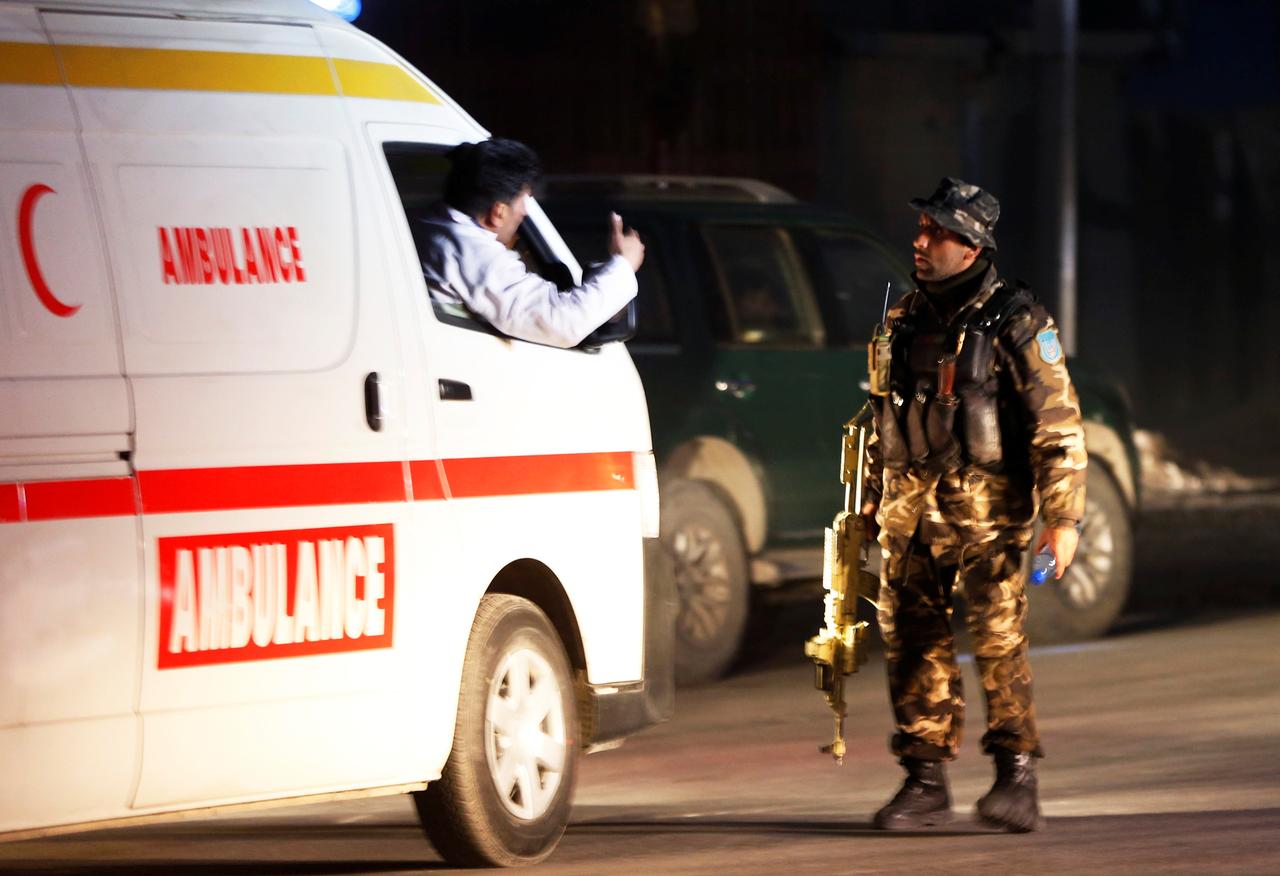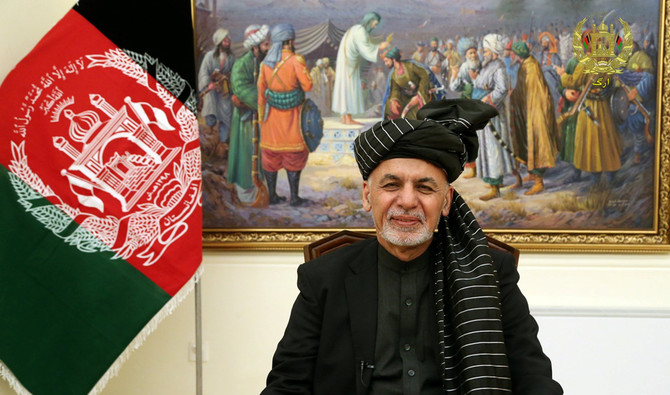2018-12-30 - Afghanistan: Asia’s Ukraine
Afghanistan: Asia's Ukraine - Eurasia Future
While much of the world has been transfixed by the post-2014 Ukraine conflict and its historical origins, Afghanistan’s internal conflicts and Kabul’s conflicts with its neighbours have followed much the same pattern. The main differences is that Afghanistan’s troubles have been going on for far longer. To understand the similarities between the two states and how these similarities have caused parallel conflicts, one must examine these parallels point by point.
* A multicultural state masquerading as an ethno-state/culturally unitary state
Both Afghanistan and Ukraine as presently comprised, are mixes of several distinct and at times hostile ethnic/religious and cultural groups.
In Afghanistan, a plurality of the population are ethnic Pashtuns, while ethnic Tajiks, Uzbeks and Hazaras also form a core of the nation’s ethno-lingusitc groups. These main sects are supplemented other smaller minority groups including Aimaks, Turkmens and a Baloch minority along with other even smaller sects.
In Ukraine, it is still a highly subjective matter (due to the fluidity of ethno-linguistic self-identification) when it comes to determining whether there are more ethnic Russians or more ethnic Ukrainians in the country (the origins of this will be explored subsequently). Suffice to say, the country is geographically divided between an east and south where a majority identify either as full ethnic Russians or linguistic Russians, while central and especially western regions are largely populated by self-identified ethno-linguistic Ukrainians. Likewise, there was a vast Polish population in the north-west of contemporary Ukraine (such regions were part of Poland between the world wars) that was largely ethnically ceased, first by Nazi Germany and their Ukrainian nationalist collaborators, before Stalin finished the job after 1945. In the south-west, there remain minority populations that include ethnic Hungarians, Romanians and Slovaks.
And yet in spite of these ethno-lingustic differences, there has been a push in the modern Afghan and Ukrainian states to link citizenship with a common “Afghan” and “Ukrainian” civic identity when both historically and presently, none exists. This is one of the roots of the internal strife that has plagued both states.
* Defining national identify in strictly negative terms
–Ukraine
Prior to the 20th century, the term Ukrainian as a distinct ethnicity was largely unknown. Yet in the early 20th century, it became advantageous for the German troops occupying erstwhile Russian Imperial lands (in line with the Treaty of Breast-Litovsk) in the midst of Russia’s civil war and later the Bolsheviks that were victorious in the civil war to invent “Ukrainian” as a distinct ethnic identity as opposed to a regional identity that prior to the 20th century was known as a Little Russian (among Russian speakers) or Ruthenians (in most European nations including the Austro-Hungarian Empire).
For the Germans of the early 20th century as with the German dominated European Union of the early 21st century, it was helpful to see Ukrainians as distinct from their Russian cousins to the east and their Polish cousins to the west in order to provoke Moscow on the one hand while not encouraging the concept of a restored Greater Poland (aka Piłsudski’s model) on the other hand. Similarly, for the Bolsheviks of the early 20th century, the idea that a Russian Empire had given way to a Soviet “brotherhood of nations” required Moscow to both recognize and in some cases invent new national (rather than regional) identities in order to bolster the rather obtuse concept of national fraternity that had allegedly replaced a unitary empire.
–Word games
Beyond this, the very word Ukraine roughly means borderland or frontier-land in regional languages, while the term Abgân (the forerunner to the modern term Afghan) first appeared among Sassanid Persians to vaguely denote the ethnic group recognised by contemporary scholars as Pashtuns. In both cases, the meaning of these words took on very different meanings in the late modern era and in both cases for largely artificial reasons.
–Afghanistan
While the 18th century’s Durrani Empire with its first capital in the modern Afghan city of Kandahar is often considered the first modern Afghan state – the Durrani Empire bears the same kinds of similarities to today’s’ Afghanistan as did the proto-state known as the Cossack Hetmanate to modern Ukraine. In other words, these similarities are superficial at best. In both cases, largely primitive states existed for a relatively short period of time before being effectively consumed by more powerful and sophisticated neighbouring states, thus hardly being fully-fledged antecedents to the Afghanistan and Ukraine that the world knows in 2018.
But while the Hetmanate was formally brought under Russian protection with the 1654 Treaty of Pereyaslav, the establishment of the Emirate of Afghanistan in 1823 was largely a result of a British preference for a sovereign Afghan state as opposed to an Afghanistan that may have become part of a Russia that in the 18th and 19th century continued to expand southward into traditional Persian and Turkic realms.
While Britain in fact sought to conquer the Emirate of Afghanistan during much of its existence, Emir Dost Mohammad Khan had more luck than Cossack Hetman (leader) Bohdan Khmelnytsky when it came to playing nearby great powers against one another. Dost Mohammad Khan initially forged an alliance with the British Empire which controlled British India to the east (including all of modern Pakistan), but by 1839 he had made overtures to the Russian Empire to the north. This resulted in the first Anglo-Afghan war which Dost Mohammad Khan’s forces eventually won. After a period of captivity during the war, Dost Mohammad Khan reclaimed power in 1845.
The regional rivalry between Britain and Russia for influence over the fledgling Emirite resulted in a second Anglo-Afghan war fought between 1878 and 1880. While Britain was forced to vacate the territory of the Emirate, the subsequent Treaty of Gandamak saw Britain taking over the Emirite’s foreign relations, thus effectively making the Emirate a British satellite state for all geopolitical intents and purposes.
After a third Anglo-Afghan war in 1919, the Emirate and Britain signed the Treaty of Rawalpindi in which the Afghan side agreed to recognize the Durand Line as the legal border between the British Raj and Afghanistan’s eastern frontier.
It was these events which helped to define later 20th century Afghan nationalism in negative terms. As the majority of the world’s Pashtuns lived to the east of the Durand Line (in modern Pakistan), Afghanistan was not in fact the “Pashtunistan” that many Afghan nationalists sought and still seek it to be. Inversely, the presence of non-Pashtun minorities- those who were largely either culturally/linguistically Persianate or Turkic were expressly alienated from those gunning for a “greater Pashtunistan/greater Afghanistan”.
Thus, while the country had and retains a substantial Persianate population – it was not part of Iran. Likewise, while the country had and retains a Turkic minority, it was not part of the wider Ottoman space. Finally, because most Pashtuns did not live in Afghanistan, it could not be a a “greater Pashtunistan”.
Therefore, just as Ukraine has come to define itself as a place that is neither Russian nor Polish but one culturally, linguistically and spiritually shaped by both with acknowledging neither, so too is Afghanistan a place shaped by multiple cultures and yet none of these cultures singularly define Afghanistan.
* From client states to international war zones
So long as Afghanistan was a de-facto British satellite state, it could not threaten the populations within the western flank of the British Raj. Likewise, so long as Ukraine was but a constituent part of the Soviet Union, it could scarcely be a place of conflict between competing nations, let alone a place of major internal conflict.
But in the 20th century, when the western flank of the British Raj became the independent Islamic Republic of Pakistan – this placidity changed. After the withdrawal of the British from south Asia, renewed calls in Kabul to conquer parts of Pakistan’s territory and integrate them into a “Greater Pashtunistan/Greater Afghanistan” became the defining feature of Afghanistan’s quest for a solid identity. Reneging on the terms of the Treaty of Rawalpindi, every Afghan state from 1947 onward has refused to recognise The Durand Line as the border between itself and Pakistan, even though Pakistan legally inherited British era treaties concerned with its borders – just as the same was and remains true of The Republic of India.
The expansionist tendencies of successive Kabul regimes made the country a playground for India backed terror groups threatening Pakistan’s territorial integrity, while in 1979, the Soviet Union disastrously decided to aid a Kabul regime that like many before it, could not stand on its own feet.
Today, the US has subsumed the USSR’s position of trying to uphold a Kabul administration incapable of standing on its two feet and just as was the case in respect of the USSR and British Empire before it, the US is in Afghanistan not because it realistically thinks it can conquer a notoriously unconquerable land, but because Afghanistan is a convenient location from which to gain geopolitical leverage against its powerful neighbours – Pakistan, China, Iran and the pro-Moscow Tajikistan.
Like Afghanistan, Ukraine has proved that it is not a state capable of self-governing on its own two feet. It can only exist with the support of an external power whether it be Poland, Germany, Russia or now, the United States and its EU allies. But perhaps paradoxically, when Britain, the USSR and now the US intervened to prop up or alter incompetent Afghan regimes, a bad situation only got worse. The country became an even bigger cauldron in which to foment provocations against neighbouring states, while internal sectarianism generally went from bad to worse.
Similarly, while the Ukrainian regime of Viktor Yanukovych tried to balance its international relations by attempting to be a client state of the US/EU
and Russia simultaneously, much like Dost Mohammad Khan had tried to do in respect of Britain and Russia – today’s US supported Ukrainian regime has seen an embarrassingly bad situation descend to one of blood soaked internal conflict as well as conflicts with neighboring states.
* Lessons to be learnt
If the late-modern history of both Afghanistan and Ukraine can teach the world anything, it is that it is better to let perpetually failed states fail on their own rather than try to prop up countries whose centre cannot hold due to sectarianism and whose interactions with neighbors are uniformly hostile due to a desire to define nationalism as a force of negativity against others, as opposed to a force for internal harmony.
Because Ukraine and Afghanistan can only define themselves in terms of opposition to others, lest their respective internal sectarianism divides become explosively exposed, it would be better for a genuine international community not to sacrifice the stability of comparatively normal states in order to prop up two states that should have long ago been peacefully broken apart along both logical and democratic lines.
 A member of Afghan security force stands guard as ambulance arrive at the site of an attack in Kabul, Afghanistan December 24, 2018.REUTERS/Omar Sobhani
A member of Afghan security force stands guard as ambulance arrive at the site of an attack in Kabul, Afghanistan December 24, 2018.REUTERS/Omar Sobhani



